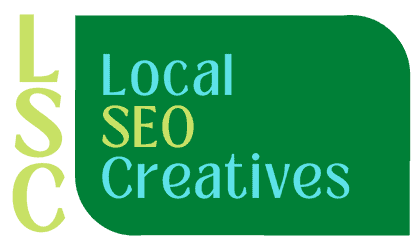The meta description is more than just a place for you to drop a few keywords and phrases that you’re hoping people will see after clicking on your local SEO listing. In fact, it’s probably one of the most overlooked parts of a Google Local listing.
The meta description for a Google Local listing plays an important role in search engine traffic for your store or company – especially if you are trying to gain more visitors with SEO in mind!
When you’re have a local business, you probably want the best possible SEO for your SEO campaign. This is often an overlooked aspect of SEO, and a great meta description can help your page get found! But what in the world is a meta description?
What is Meta Description?
A meta description is the short snippet of text that appears below the title tag on a webpage. It’s meant to give potential readers a sense of what the page is about and how they should interact with it.
A meta description is not meant to be used as your entire description. Rather, it should be used to complement your content and help you get found in search engines.
When writing your meta description, try to incorporate keywords related to the page’s topic, but don’t overdo it! The meta description should be just enough to get people interested in reading more about what you have to say, without too much fluff or repetition.
Why is it important for local SEO?
As a business owner, you want your online business to become sustainable. You are also very keen on reaching out to customers in the local market. In order to achieve this, you need to do something about your meta description for local SEO.
A meta description for local SEO is a very important part of your overall SEO strategy. The purpose is to introduce a potential customer to your business or website as well as provide them with information about you and your company. A meta description will help you get clients and make more sales.
The meta description is a description of your page that shows below the main H1 tag on your page. The goal of a meta description for local SEO is to capture searchers’ attention in order to sell them on your business, services or products.
For this reason it should be written with precise language and also provide value by providing keywords. Ideally, a meta description should be around 100 characters long and contain both relevant keywords, synonyms and other pertinent content that improves click through rate (CTR).
How to write an effective Meta Description?
- Use Local Keywords and your service details
There are a lot of things you should consider when writing your meta description, but perhaps the most important is to include local keywords and service details.
Local keywords can help people search for local businesses, while service terms can help them find out more about what you offer. For example, if you offer a variety of services like home cleaning, hair styling and manicures then use these words in your title and description to get more clicks on Google.
Keywords are words that describe your business, and they’re a big part of SEO. The more specific you can be when you’re describing your business, the better chance you have of ranking higher on Google.
For example, if you sell handmade jewelry, try using the keywords “handmade jewelry,” “custom jewelry,” and “handcrafted jewelry” in your meta description. You can also use these same keywords throughout your website, so that when people search for them with their browser’s search bar or when they’re browsing on Google News or any other news site—they’ll see your content appear higher up in the results than it would if it weren’t used on those platforms as well.
- Use keywords related to your business and location
Write a Meta Title & Description that attracts traffic to your business and helps search engines like Google, Bing and Yahoo understand your content better.
The Meta title is the first thing that appears on search engine results pages. It’s used to describe the page and include keywords that you want people to find when they search for information about your business or product.
You can use keywords throughout your meta title, but it’s important to keep them relevant to who you are, where and what you do. For example, if you sell health products then include keywords related to health in your meta title such as “healthy foods” or “natural remedies.” If you are offering service locally, you can include keywords like “US restaurants”, “US dental care services”.
- Use unique yet relevant to your service
When it comes to creating unique meta descriptions for each page on your site, one of the most important aspects is ensuring that you’re using keywords and phrases that are relevant for each page on your site.
That way, when people search for a business or individual, they will find exactly what they’re looking for — or at least something that is relevant to the content on that page. So if you have different types of pages – such as blog posts, product pages and even FAQ pages – make sure your meta descriptions are consistent with each individual page.
In addition to that, it’s a good idea to feature keywords on your descriptions so your search engine also understands what these pages are about.
Meta descriptions are often overlooked in local SEO, but they are just as important as the title tag. Meta descriptions give potential customers an idea of what your website is about. These descriptions can be long (as much as 2,000 characters) and include keywords that you already use in the URL along with some additional terms that could help the searcher find your business or website.
Meta descriptions are a really important part of any local SEO strategy. They determine the potential of your site and whether or not the value that it provides to your prospects is clear. Meta description not only has to be descriptive but also needs to accurately describe the purpose and function of your page as well. A page that doesn’t have a descriptive meta description might as well not have one at all because people will never find it.

